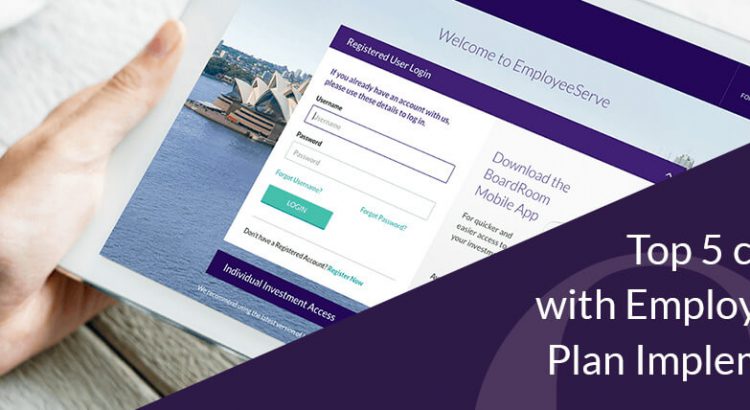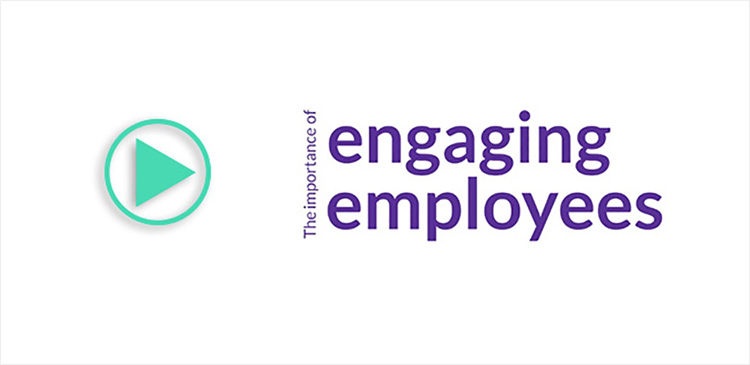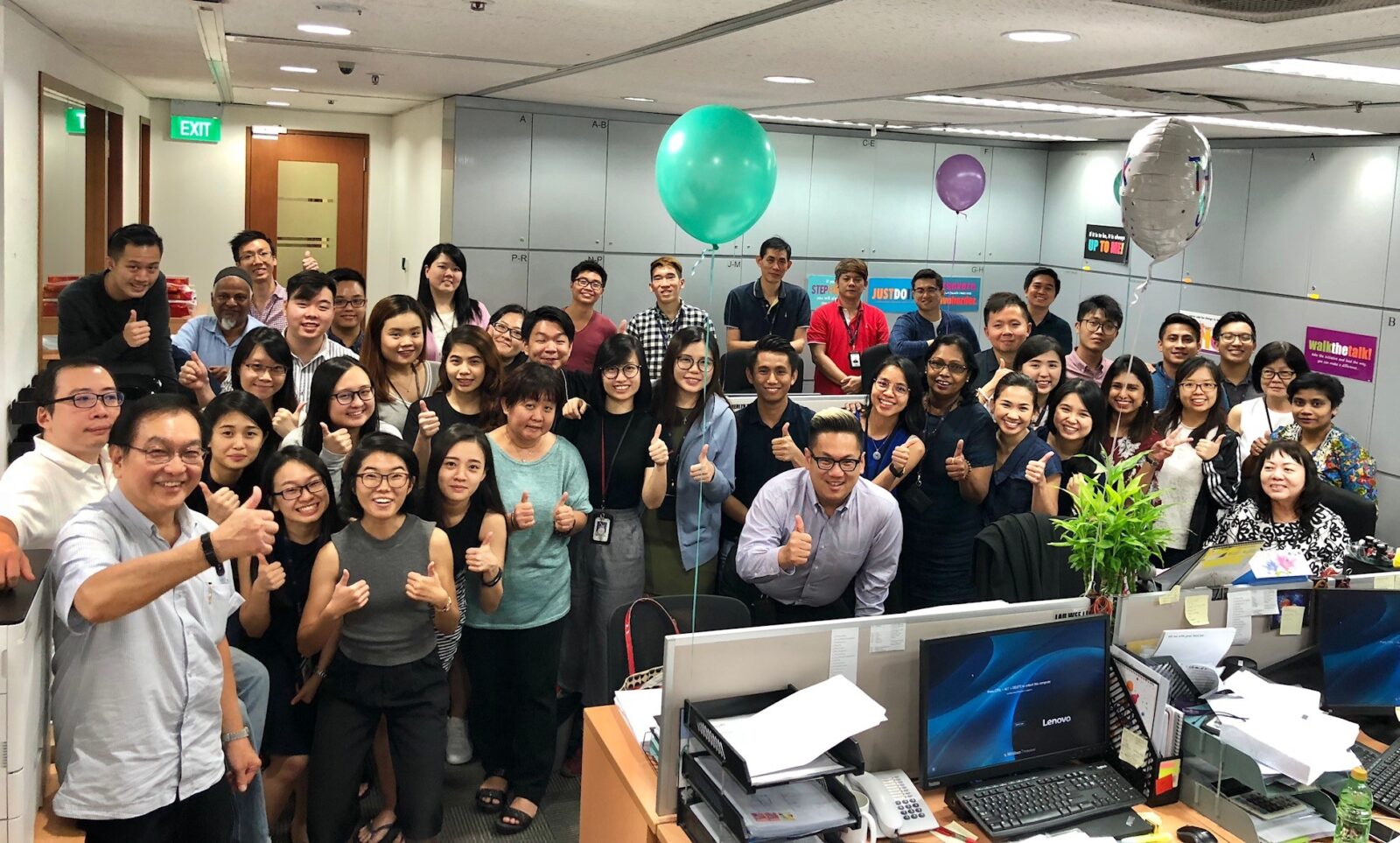Interview Series
A Day In The Life of an SRO
1. Describe myself in a sentence or collection of words?
I’m a small-town boy, who is sport obsessed, a proud Manchester United fan, avid sneakerhead aka collector with an undeniable sweet tooth and Netflix and chill is life.
2. What’s your best dad joke?
What do you call an elephant that doesn’t matter? Irrelephant. (Full disclosure, I had to Google this lol)
3. How do you explain to people what you do?
I’d say that I work in a very niche service role that not a lot of people know. Basically, I do client servicing for listed and un-listed companies. They could be publicly listed on the Singapore Stock Exchange or elsewhere. From a client servicing standpoint, I do a whole range of things but one of which is answering shareholder enquires – as an example someone has enquired about any upcoming meetings or dividends (money issued to shareholders), or a change in the shareholders particulars e.g. name, address etc.
4. Walk me through a typical day in the office at Boardroom.
I usually get to the office around 8am or 8:15am (I know it sounds early!) but I like to have my breakfast here (honeydew melon, 2 pieces every day), and read the news, basically ease into my day. Then I’d start my work, clearing emails transferring of shares, issuing of cheques to shareholders. I also work with someone on my team to help the newcomers with training each day. At about 11:00 or 11:30 (to beat the Raffles rush!) we usually go out for lunch, there’s loads around thankfully as we’re a bit too lazy to walk too far 😉 after lunch I continue with my work and also train new team members. Then late in the afternoon I’ll plan for the following day or any peak upcoming meeting seasons.
5. What’s your favourite element of the job?
There’s two elements to this for me, the professional piece and the personal. I’ll start with the professional which would be the completion of a successful meeting. It’s difficult to describe the sense of accomplishment when you’re involved in the whole process and the meeting goes off without a hitch and you have a very happy client. I just feel a huge sense of achievement. The other element that I love about my job is the people – they’re awesome! Especially in Share Reg, I don’t see them as colleagues, I genuinely see them as friends. We hang out during work, after work and on the weekends!
6. Did you know what an AGM was before you started work here?
I was aware of the term, but I had no real idea of what the proceedings were and what the purpose was.
7. What are you looking forward to right now?
Pay day! Kidding (sort of haha). In all seriousness, meeting my clients. Our clients typically have their meetings once a year, so I love putting a face to the name I’ve been seeing in my inbox all year!
8. What was your first AGM experience like?
I was soo nervous, especially because this happened in my first few days on the job! I was part of the registration team, it felt very formal, but I had a very supportive senior manager who walked me through the entire process. It made me feel more relaxed and settle into the job. Once the meeting started I went into the meeting room to take down questions, it was a bit daunting at first as there was a lot of technical terms flying around where shareholders were quizzing the board on decisions but I feel that overall it was an awesome experience sitting inside the meeting as it gave me a great overview of the company, how they’re doing and where they’re headed.
9. Why do you love working with your team?
They’re all a friendly and fun bunch of people. Plus, my manager is super knowledgeable and supportive, I’ve learnt a lot from her.
10. What’s your biggest takeaway from your experience here at Boardroom Share Registry Services?
Our clients that we deal with are all high-level management, as a result I’ve learnt best-practicing client servicing such as speaking professionally, managing expectations and building relationships. I’ve also learnt a lot about the industry. Most importantly, I’ve made some lifelong friends – everyone in the team is around my age and we all just get along so well.
1. Describe myself in a sentence or collection of words?
I’m a massive foodie, friendly, outgoing, I could talk to people all day, easily adaptable, very organised except for at home with my clothes, I love travelling for the food and people. I listen to all types of music and am definitely prefer dogs to cats
2. What’s your best dad joke?
Ok I’ve got one – what do you call it when a short person waves? A microWAVE! Get it??
3. How do you explain to people what you do?
It’s very difficult to explain, I usually start off with I’m a Share Registry Officer and end at Client Services Officer, which certainly doesn’t do justice to the job but it’s really hard to explain to people, especially if they themselves don’t invest as they don’t understand the language we use or the parties we work with like SGX.
4. Walk me through a typical day in the office at Boardroom.
A day in BoardRoom varies according to the month we’re in. So, in April you walk into the office and it will be empty as we’re all out for AGMs during the day but at night the office will be filled with people as we’re all back preparing for the next day’s AGM. It’s such a crazy month! Then on the months with distribution (about 4 months), we’re busy with tax declaration forms and preparing of cheques, it’s a fun time because we all sit around opening mail together laughing and chatting. In December we enjoy taking long lunches and feasting on the Christmas buffets, so we take a breather and reset for the next year. We also get a lot of gifts from clients during this time of the year like hampers and cookies.
5. What’s your favourite element of the job?
Definitely gaining new knowledge every day. For me it’s always interesting because for every client the corporate action is completely different, so as a result I learn a lot of stuff that I would never have learnt if it weren’t for the role I’m in. You learn soo much here! Sometimes I think it’s too much for my brain
6. Did you know what an AGM was before you started work here?
No, not really. Fun fact, I actually started out here as a temp staff to just help out with the AGMs, I’d just graduated from school and I had no idea what AGM, financial year-end, etc meant! I’ve come a long way since then!
7. What are you looking forward to right now?
I’m looking forward to my next lunch buffet! Kidding! There is one of our clients who always put on the BEST spread at their AGMs. I look forward to it every year and the team always fights over who gets to attend. And sometimes seeing and meeting cute guys aka young lawyers!
8. What was your first AGM experience like?
Oh my gosh, that was 5 years ago so I barely remember! There was no polling then, so it was a little simpler than today. My first experience when I was fronting the AGM, i.e. when you need to read the procedures was quite nerve-wracking as everyone is staring at you, the Chairman, the Board, the Shareholders. But it’s a huge sense of accomplishment when everything goes smoothly.
9. Why do you love working with your team?
My team is awesome!! For me I think I have great managers and colleagues that always help one another. There’s a real ‘no man left behind’ mentality so we share everything 😊 and we laugh a lot! We’re like a family, we hang out outside of work and have gone on trips together. Working here has really bonded us.
10. What’s your biggest takeaway from your experience here at Boardroom Share Registry Services?
There’re too many things! I’ve learnt how to be calm under pressure. To also be able to adapt in a lot of different scenarios and deal with things professionally. I’ve made a lot of connections too. Sorry! I can’t just limit it to one!
1. Describe myself in a sentence or collection of words?
I come from the city of smiles, am coffee and rice obsessed, a sunset chaser and dog lover with a weird obsession for gory shows (Game of Thrones anyone?). I love my friends, but I also love ‘me time’. Oh, and most importantly I’m a karaoke tragic and can sing Mariah Carey until the sun rises!
2. What’s your best dad joke?
My dad is actually very funny, and this is his joke that I can never forget…
One day he told us what our baby’s name should be based on a combination of our partners’ name and our name! Some of them were hilarious!
So, for my sister Hannah whose boyfriend was Robel; their baby should be named Harob. For my sister Nissi who’s boyfriend was Paul – the baby’s name should be Nipaul (haha). And mine was the least ugly, I was with this guy named Carlo, and he said our baby should be named Loren (not so bad right haha)
3. How do you explain to people what you do?
To be honest I’m really struggling with explaining to people what I do because people don’t know what Share Registry is so most of the time I tell them I do an operational job in this company called BoardRoom. If they want to know more, I will then explain what BoardRoom does and say as an example if a company wanted to list on the Singapore Stock Exchange they would need to approach a Share Registrar to manage their shares, that’s where we come in. I would then say day to day we process tax forms for clients so that their investors won’t be taxed internationally. Amongst other things of course.
4. Walk me through a typical day in the office at Boardroom.
I’m a sunset chaser who struggles to wake with the sun. When I get into the office I start by checking emails and thinking about when I can go and get a coffee. (lol) After that I spend a lot of time completing tax forms, replying to emails, answering phone calls. I usually go out for lunch with a few of my team around 11:30 (we don’t really eat breakfast so are starving by this time!) we usually to a great local Indian restaurant. I then go back to the office and drink a lot of tea and continue with any ad-hoc requirements or jobs that are outstanding from the morning. I’m also studying part-time, so I usually have classes after work.
5. What’s your favourite element of the job?
I actually work really closely with senior staff in the company assisting their projects. I take a huge amount of pride in what I do and ensuring I’ve done a good job, so I love when I am recognised for that.
6. Did you know what an AGM was before you started work here?
I had no idea what an AGM was before I started here! My background before this was customer relations in a hotel so this is a whole new world for me!
7. What are you looking forward to right now?
I’m really looking forward to finishing my studies, it’s just around the corner. From a working standpoint, we’ve just had a new boss come in so I’m excited to get to know him and see how the team and my career develops under his management, especially once I finish my studies.
8. What was your first AGM experience like?
I started working at BoardRoom at the end of September and October is a peak season for AGMs so on my second week I attended my first AGM and helped with registration. I was worried about wanting to look professional and ensure I could answer client questions, but the team was really supportive and assured me that I wouldn’t be put on the spot like that and to just watch and learn which made me feel really comforted. It was a great learning experience seeing the teamwork through the AGM and interact with clients.
9. Why do you love working with your team?
We really treat everyone as a family and not just my team but the wider Share Registry team. We’re always happy to help one another out no matter how busy we all are. I genuinely feel like we’re all part of a family.
10. What’s your biggest takeaway from your experience here at Boardroom Share Registry Services?
Working here has really built my confidence because the team is so supportive and encouraging. In addition to this, I can see how much I’ve learnt since starting here and this continues every day, so it makes me feel like I’m continually growing and developing in myself.
1. Describe myself in a sentence or collection of words?
I’m all about a slow pace of life, brunches, binge-watching Korean drama & Marvel movies on Netflix (yep my tastes are diverse)! I love travelling, mostly to Australia as they’re just so chill! I also have an upcoming epic collection of statues and figurines, the biggest addition to my collection will be Optimus Prime!
2. What’s your best dad joke?
I don’t really have one, as I’m not good at remembering jokes sorry! I’m sure I’ve heard some good ones though.
3. How do you explain to people what you do?
It’s tough as most people don’t really understand what we do unless they are very into the stock market. So, I basically say that we help listed companies on SGX with things like corporate action (share transfer etc.) and help clients to manage and plan for their general meetings (AGM, SGM, EGM etc.).
4. Walk me through a typical day in the office at Boardroom.
For the most part I spend my days checking emails, replying to shareholder queries and calls with my clients. There’s also a lot of ad hoc activities to do so it’s a good change of pace and keeps things interesting. For me the best part of my days are the people I work with. We have such a great team and spend a lot of time together, sometimes too much time when I think about some of the conversations we’ve had over lunch, nothing is off-limits, including bowel movements and bad dates! haha
5. What’s your favourite element of the job?
Even though we work in an office job there are times where we are able to leave the office for AGMs and site visits which are really exciting and different.
6. Did you know what an AGM was before you started work here?
I only had a vague idea of what an AGM was i.e. it was an annual meeting with shareholders, but I had no idea what was discussed and how they work.
7. What are you looking forward to right now?
5:30? (haha, kidding!) I have an AGM coming up tomorrow so I’m looking forward to that.
8. What was your first AGM experience like?
Slightly nerve-wracking as I was afraid I wouldn’t be able to register shareholders properly. My first AGM was a big one and I was actually supporting another team who were really busy. The team I was assisting were so helpful and really supportive as they knew it was my first time – the teamed me up with a buddy who was able to assist me and help with my confidence on the day.
9. Why do you love working with your team?
They’re fun, young, helpful and energetic.
10. What’s your biggest takeaway from your experience here at Boardroom Share Registry Services?
I’ve been able to learn more about how the stock market and listing company works, I’ve actually found it to be really interesting – more than I originally expected which has been great!

Looking For Share Registry & Meeting Services In Singapore?
BoardRoom is the market leader in share registry services, helping to guide companies through their IPOs, from executing shareholder meetings, running proxy votes, scrutineering to serving as a share registrar.
With a 50 + year track record of success serving over 7,300 clients regionally, we are the experts in helping companies, from multinational corporations to fast-growing SMEs, allowing them to focus on what matters – growing their business.
Contact us today and empower your organisation with our range of corporate solutions.
Or you can also learn more about our share registry and meeting solutions here.

















